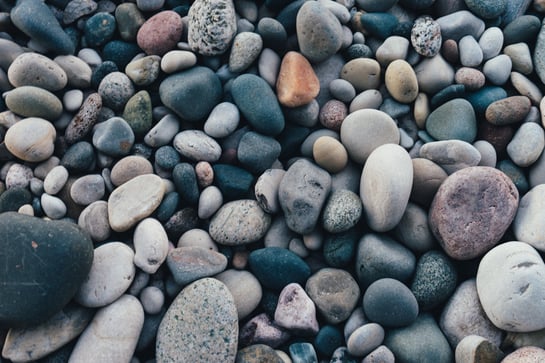Bringing back stones, shells & co. from a trip?Better not!

Taking a souvenir from your vacation destination is a normal wish of many tourists. However, this is usually not allowed. Stones, shells, sand and the like are part of a country's natural resources and many countries have laws and regulations that prohibit or restrict the export of certain natural materials, including stones. They want to protect the environment and prevent illegal trade.
No stones from Turkey?
The recent case of a Belgian holidaymaker in Turkey makes it clear how dangerous it is not to behave in accordance with the laws of the vacation destination and simply pack stones. This is not a trivial matter. According to Münchner Merkur and several other media outlets, the tourist and her husband picked up a stone with two carved flowers and two pieces of marble from the beach in an alleyway. The fact that the carved stone is a historical, architectural decorative element apparently did not occur to the two vacationers and, according to Turkish authorities, both pieces of marble are part of a floor mosaic. The couple will not be allowed to leave the country until the case has been thoroughly investigated and, in the worst-case scenario, the vacationer in whose backpack the stones were found could face not only a hefty fine, but even imprisonment.Wer in die Türkei reist sollte sich vorher genau informieren, welche Art Urlaubssouvenir erlaubt ist. Informationen hierzu gibt es beim Auswärtigen Amt.
No shells from the beach either?
Collecting shells and stones on the beach is like a treasure hunt for many people and is simply part of a good walk on the beach, but many holidaymakers are unaware that in most countries it is not permitted to collect these beach treasures and take them out of the country. It is also strictly forbidden to take sand with you on the Canary Islands, for example, but also in countries such as Italy or the Philippines. In Sardinia, there are heavy fines for stealing sand from the beach.
Washington Convention on International Trade in Endangered Species of Wild Fauna and Flora CITES
According to customs, shells, corals and snail shells, among others, fall under species protection. The Washington Convention on International Trade in Endangered Species of Wild Flora and Fauna (CITES), which has now been signed by 184 parties and thus represents almost 95 percent of all countries in the world, currently covers around 5,950 animal species and 32,800 plant species and the products made from them - including jewelry, for example.
Are there any exceptions?
There is an exception for giant clams, for example, which are mainly found in the Caribbean: you are allowed to carry up to three of these shells in your luggage for personal use. However, up to four crocodile leather products or up to four seahorses are also permitted. If you check with customs in advance, you are on the safe side.
When can I expect to be fined?
In addition to shells, snail shells, stones and sand, there are of course many other popular souvenirs that are repeatedly confiscated by customs and incur heavy fines. For example, anyone who picks gentian in Austria and is caught with it can expect to pay 15,000 euros for this mistake. But you should also be careful with counterfeit branded goods such as clothing, watches and perfumes. An allowance of 430 euros applies to goods from non-EU countries for air and sea travel. If this is exceeded, customs will take everything away and in countries such as Italy, the purchase of counterfeit branded clothing is punishable by law in the country itself.
So before every trip, always check what you are allowed to export from your vacation destination and what you are allowed to import here. However, we can help if your flight was delayed by more than three hours. Perhaps part of the compensation will cover the fine for the customs offense.




